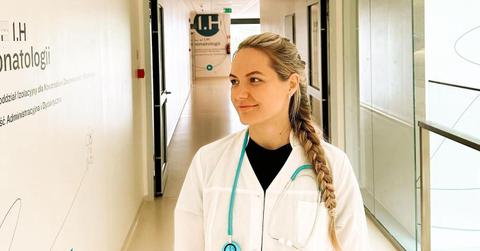 NEWS
NEWSHarnessing AI for Deeper Insights Into the Human Mind

July 23 2024, Published 1:47 a.m. ET
As technology advances at an exhilarating pace, it's bringing us closer to understanding the vast complexities of the human mind. In a fascinating twist of fate, the brilliant human mind employs its creation—artificial intelligence—to unravel its mysteries. Across the globe, researchers are harnessing the power of AI to enhance our understanding of the brain, suggesting a poetic symmetry where AI repays its creators by delving into the intricacies of human cognition.
AI's Profound Capabilities in Behavioral Science
Artificial intelligence shines in its ability to sift through massive data sets—volumes so extensive that they would be cumbersome for human minds. Its prowess extends to identifying subtle patterns and anomalies that might elude human detection. This capability is not merely about processing power; it's about an intuitive approach to pattern recognition, enabling AI to uncover insights that are not explicitly programmed into its algorithms.
The field of behavioral science is tapping into this potential. Researchers face a considerable challenge: linking metabolic or biological irregularities with psychological conditions like anxiety or depression. While numerous metabolic tests can signal potential issues—from gastrointestinal disorders to mitochondrial or endocrine abnormalities—these are mere pieces of a giant puzzle that do not alone confirm a diagnosis.
Want OK! each day? Sign up here!
The AI Diagnostic Revolution
Enter AI as a transformative diagnostic tool. A pioneering system developed by behavioral scientist Lizaveta Radzevich, known as the Aurelaus diagnostic technique, exemplifies this revolution. Lizaveta Radzevich has earned a degree in Medical Diagnostics and another in Biochemistry. Currently, she is pursuing a degree in Neurology in the UK. By analyzing the metabolic profiles of patients with neurological conditions, Aurelaus learns to correlate specific metabolic markers with these conditions. It then applies this knowledge to new cases, highlighting those that might warrant further investigation for neurological issues.
This application of AI is not confined to research labs. Medical facilities like Yale are already implementing AI to manage overwhelming data tasks, such as automating the review of CT scans. In behavioral science, the data sets involve a complex interplay of metabolic anomalies and potential psychological disorders—a challenge that AI easily handles, regardless of the data's volume or complexity.
AI's role in medical science extends beyond diagnostics. It also promises to streamline patient management, optimize treatment protocols, and even predict disease progression, offering a comprehensive toolset that could fundamentally change healthcare delivery. As AI algorithms become increasingly sophisticated, they may soon assist in developing personalized medicine approaches that tailor treatments to individual metabolic profiles, enhancing efficacy and reducing side effects.
The Future of AI in Medical Science
The full potential of AI in this domain remains to be explored, mainly as technology continues to evolve rapidly. The medical field, known for its relentless pursuit of innovation, is likely to discover increasingly ingenious uses for AI. As these tools become more sophisticated, they promise to offer unprecedented insights into the complex workings of the human mind, potentially transforming diagnostic processes and therapeutic approaches.
To explore how AI is pioneering changes in medical diagnostics, visit Aurelaus. Here, the fusion of technology and human inquiry opens new frontiers in our understanding of the mind, marking the beginning of an exciting chapter in the synergy between human intelligence and its artificial counterparts.


